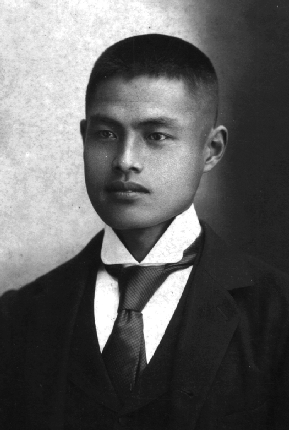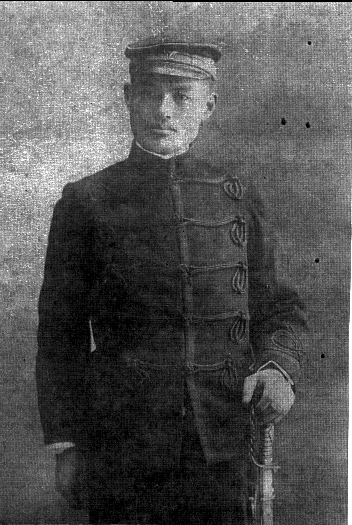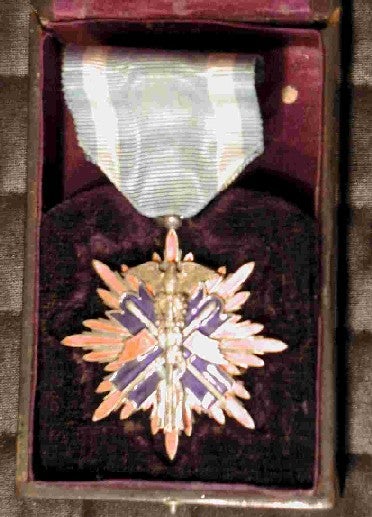Kishi In Japan

Kichimatsu Kishi was born to Ukichi Kishi on January 7th, 1872 to Ukichi Kishi, a well-educated Japanese businessman and banker from Nagaoka, Niigata Prefecture. His father, Ukichi, was born to Heizo Yamamoto in 1839 and was later adopted at the age of 11 into the Kishi Family. Nagaoka proved to be a town great for business as it became an oil town following the Meiji restoration. The oil business in Nagaoka particularly grew after the establishment of the Higashiyama oil field in 1892 where a large portion of crude oil was gathered and refined in the town. At one point, there exceeded one hundred fourty refiniries in Nagaoka. Ukichi Kishi joined the trend of investing into the oil business by founding his own petroleum companies: The Nippon Petroleum Company founded in 1888 and The Nagaoka Petroleum Company foundedin 1898. As a result of his success, he also organized the 69th National Bank (which became the Hokuetsu Bank after 1948). Born to an experienced businessman, Kichimatsu grew up in an environment that fostered his interest in business.[2]
Kichimatsu Kishi grew up surrounded by a younger brother, Hachitaro, and sister Chiyo. He would later attend Tokyo’s prestigious hitotsubashi University, well known for its graduates having a solid paths to work in big businesses. During his time at University, Kishi became a school hero as a prominent member of the boat club where he spent much of his time doing Oxford eight, a form of rowing introduced from England. Kishi was especially successful as a rower due to his well-built physique. Funnily enough, as a result, many of his teammates would ask him to break the oars that they didn’t like [2].

Following university, Kishi was employed at his father’s business, Nagaoka Petroleum Company. He continued working at this company until 1904 where Japan became engaged with Russia in war. At the time, there was a patriotic excitement surrounding participation in the war. Enticed by the idea, Kishi and his friends joined the quartermaster corps of the Japanese Imperial Army to help the war effort given their business background. Army quartermasters were tasks with supplying food, clothing, and other necessities to the regular soldiers.
Kishi spent the years of the war, 1904-1905, in Manchuria, Mainland China, where he would work on buying the best livestock from the local people. Surprised by his rapid success and high-quality livestock, Kishi’s superior asked whether he was doing anything illegal. Kishi explained that his success was due to the methods that he used in purchasing the livestock. Kishi paid for livestock by the pound instead of choosing individual livestock based on price. This meant that he would buy the best animals and the other regiments would be stuck with lesser stock. Another task of the quartermaster was to provide a hot meal to the troops at least once a day. While other quartemasters would spend large amounts of money on rice for the meals, Kishi bought soybeans, millet, and corn which served as much cheaper alternatives. For his resourcefulness, Kishi was awarded the Japanese Order of the Kite, a medal scarcely given to quardermasters [1].

Following the end of the war, Kishi considered using his knowledge of Manchuria to set up a farm. However, although the war was a Japanese victory, the land in Manchuria was expensive and bandits and thieves roamed free stealing from farmers [1]. So, Kishi decided to return to Japan. Upon his return he was met with the fact that his father’s Nagaoka Petroleum Company had been sold to the Taraka Petroleum Company and he was unable to find employment in the same company [2]. Eventually, Kichimatsu was able to find employment at a sewer pipe manufacturing firm, but as a businessman he found the job did not spur his interest. Kishi needed something else to fulfill his desire for adventure and so he departed for the US [1].
References
1. Walls, Thomas K. (1987) The Japanese Texans, San Antonio: University of Texas, Institute of Texan Cultures at San Antonio, 1996.
2. Orii, K. (1983) Kichimatsu Kishi’s Japanese Colony at Terry, Texas, Department of History, University of Pennsylvania.
3. Wingate, G. (1974) “The Kishi Colony,” in The Folklore of Texan Cultures, Abernethy, F. E., ed. The Encino Press, Austin.
Taro Kishi (1903 - 1993)
